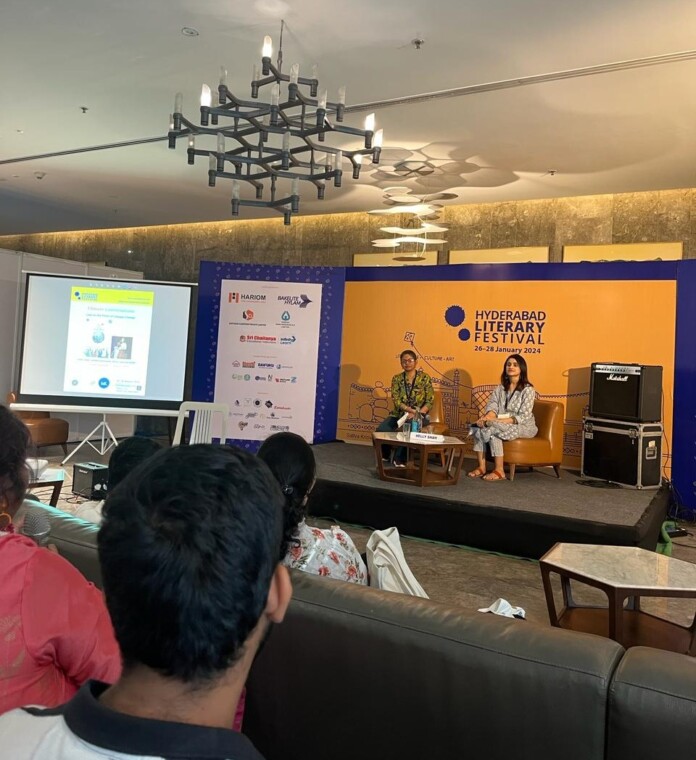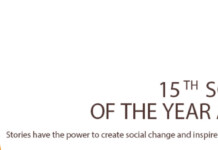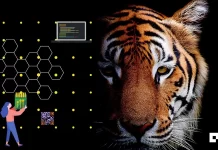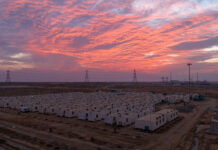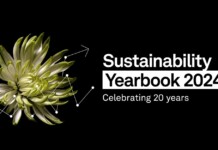In the year 2030, as sea levels continue to rise and storms loom ominously over the cityscape, likely Mumbai, a couple deeply enamoured with each other, oblivious to the world around them, becomes ensnared in the tempestuous weather. This narrative unfolds in the opening lines of Helly Shah’s poem, “Ghar Khab Aoge?”, one of the seven poignant pieces featured in the spoken-word poetry project, “Love in the Times of Climate Change.” The project was introduced to the general public during a Climate Conversation session at the Hyderabad Literary Festival on January 27, 2024.
A collaboration between the Council on Energy, Environment and Water (CEEW) and the online spoken word platform UnErase Poetry, a new project titled “Love in the Times of Climate Change” has been launched. This collaborative effort aims to delve into the multifaceted experiences of climate change through the lens of poetry, shedding light on how the shifting environmental landscape intersects with the complexities of human relationships and emotions.
The poets involved in this endeavour, including Amandeep Singh, Shubham Shyam, Priya Malik, Sainee Raj, Simar Singh, and Priyanshi Bansal, were selected not only for their artistic prowess but also for their significant social media followings.
Helly Shah, reflecting on the collaboration, highlights the importance of merging art and science to engage a wider audience in conversations about sustainability. “By harnessing the emotive power of poetry, the project aims to bridge the gap between scientific data and personal experience, fostering empathy and understanding among listeners”, says Ms Shah.
The poets delve into themes of nostalgia, companionship, and desire, offering poignant reflections on how climate change intersects with our most cherished emotions. Amandeep Singh’s poem, for instance, delves into the bittersweet nostalgia of encountering a past love amidst a transformed landscape, while Priya Malik draws parallels between love and the natural world, highlighting the interconnectedness of human relationships and environmental stewardship.
“Back in the day, rain was a cherished experience,” reminisces Karthik Shukla, a media student from Bangalore. “We’d sit with family, devoid of cellphones, relishing conversations with siblings. Power cuts forced us to listen, and play physical games. But now, even if we inquire about the rain’s timing, we draw a blank. The explosion of technology has changed everything. Climate change, COVID, tech – they’ve transformed our lives. It’s like what I thought would happen in a decade is unfolding now, accelerated by the pandemic.”
On the other hand, “I adore stargazing,” confesses J Shiruti, the author of this piece. “Every night, a clear winter sky brings immense joy. However, it’s been a different story lately. I’m compelled to travel to less polluted areas just to glimpse a decent evening sky. Climate change is taking away real-time experiences. My love for the stars, particularly the Orion/Hunter constellation, feels like a long-distance relationship due to time, uncertain climate, and travel constraints.”
“I find that we’re venturing out less these days, partly due to the fear of getting tanned or suffering from heat strokes, among other factors,” explains Sankskriti Dalmia, a digital nomad and avid traveller. “The temperatures are hotter than usual even during the winter months, which affects our willingness to explore new places and cuisines. My partner and I are typically outgoing and enjoy discovering new experiences together, but lately, we’ve noticed a decrease in the quality time we spend together, even when we’re in each other’s company due to these environmental restrictions.”
In the words of Helly Shah, “Personification of climate change can be done through art like poetry,” underscoring the project’s mission to evoke emotional resonance and inspire action. As we navigate the complexities of love and loss in an era defined by climate uncertainty, “Love in the Times of Climate Change” serves as a powerful reminder of our shared responsibility to protect our planet and preserve the bonds that connect us all.


